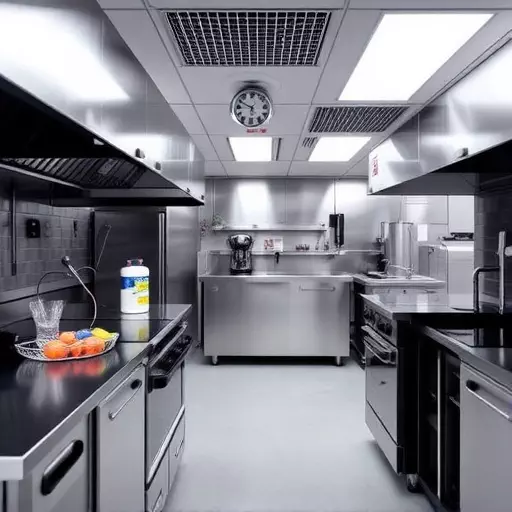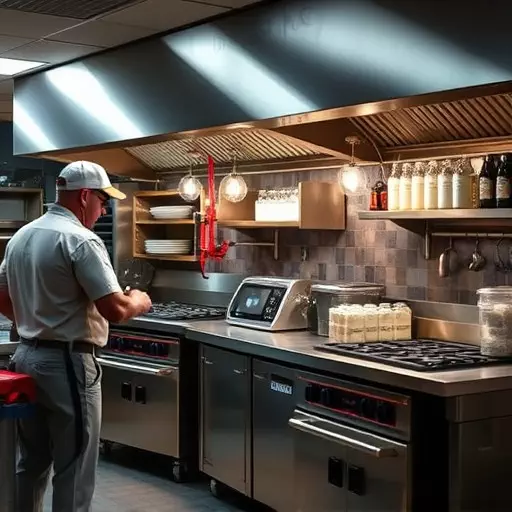Emergency preparedness audits, especially Certified Kitchen Suppression Inspections in Fayetteville, are crucial for safe culinary environments. These detailed evaluations assess fire safety systems, identify hazards, and ensure compliance with local fire codes through rigorous testing, staff training evaluation, and emergency equipment availability. Regular inspections and fire suppression zone testing services are vital for maintaining compliance and safeguarding lives in commercial kitchens, offering solutions to enhance fire safety and boost confidence in emergency response capabilities. To maintain comprehensive kitchen fire safety, implement structured audits involving certified professionals for bi-annual or annual inspections and train kitchen staff in fire safety protocols, while also utilizing fire suppression zone testing services.
Staying ahead of potential hazards is crucial in any culinary environment. Emergency preparedness audits, specifically for kitchen fire safety, play a vital role in protecting lives and property. This article delves into the essential practices of these audits, highlighting the significance of certified kitchen suppression inspections and fire suppression zone testing services. From understanding audit fundamentals to implementing best practices, we explore how these measures contribute to a safer cooking space, focusing on the benefits of professional services like Kitchen Suppression Inspection Fayetteville.
- Understanding Emergency Preparedness Audits for Kitchen Fire Safety
- The Role of Certified Kitchen Suppression Inspections
- Fire Suppression Zone Testing Services: Ensuring Compliance
- Best Practices for Comprehensive Kitchen Fire Safety Audits
Understanding Emergency Preparedness Audits for Kitchen Fire Safety
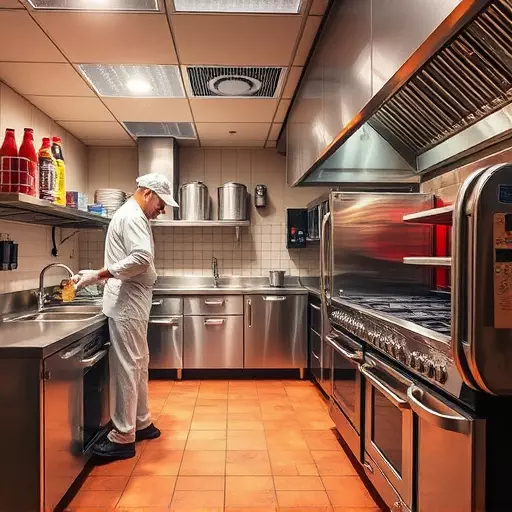
Emergency Preparedness Audits for Kitchen Fire Safety play a pivotal role in ensuring the well-being of your establishment and its occupants. These audits, conducted by certified professionals, involve a comprehensive evaluation of your kitchen’s fire safety measures. A Kitchen Suppression Inspection Fayetteville is not just about checking boxes; it’s a meticulous process that includes assessing fire suppression systems, identifying potential hazards, and verifying compliance with local fire codes.
Certified kitchen suppression inspections go beyond routine maintenance checks. They include thorough testing of fire suppression zones, ensuring every system is operational and ready to suppress or extinguish fires promptly. These audits also consider evacuation protocols, staff training, and the availability of emergency equipment. By utilizing fire suppression zone testing services, businesses can have peace of mind knowing they are prepared to respond effectively in case of a kitchen fire, minimizing potential damage and saving lives.
The Role of Certified Kitchen Suppression Inspections
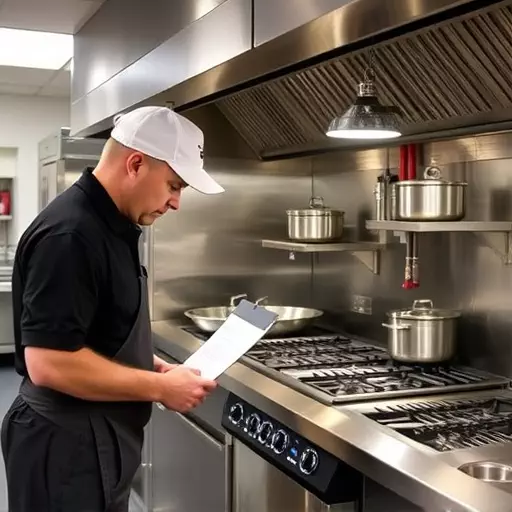
In the event of a kitchen fire, a well-prepared and equipped facility can make all the difference in minimizing damage and ensuring the safety of occupants. Certified Kitchen Suppression Inspections play a pivotal role in this preparation. These specialized inspections, offered by professionals in Fayetteville and beyond, go beyond basic safety checks. They involve thorough evaluations of fire suppression systems specific to commercial kitchens, including gas ranges, exhaust hoods, and fire extinguishers. By conducting these inspections, experts identify potential hazards, verify system functionality, and provide crucial recommendations for improvement.
Regular Kitchen Suppression Inspection services are essential for maintaining a safe environment. They enable businesses to meet regulatory standards and ensure that their facilities are equipped to handle kitchen fires effectively. Fire suppression zone testing services are a critical component of these inspections, as they confirm the readiness and reliability of automated fire suppression systems. This proactive approach to safety is vital in preventing kitchen fires from escalating and causing significant damage or injury.
Fire Suppression Zone Testing Services: Ensuring Compliance
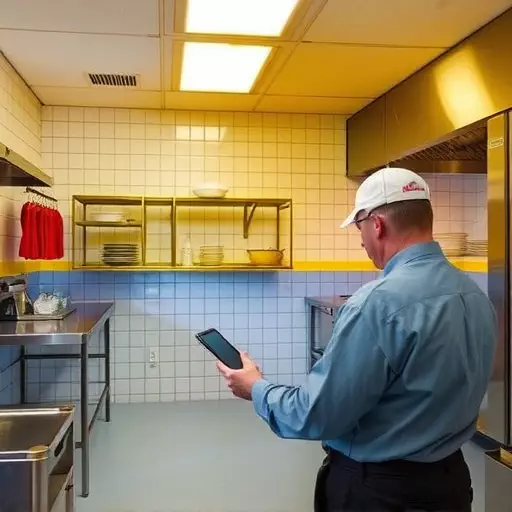
In the realm of kitchen fire safety, regular Fire Suppression Zone Testing Services play a pivotal role in ensuring compliance and safeguarding lives. These certified kitchen suppression inspections are designed to evaluate the effectiveness of fire suppression systems within commercial kitchens, a critical aspect often overlooked. By employing specialized professionals, businesses can guarantee that their facilities adhere to stringent safety standards set by local regulations.
Fayetteville residents and business owners should take advantage of these services, offered by trusted providers specializing in kitchen suppression inspections. Such audits involve meticulous testing and analysis, identifying potential vulnerabilities and offering solutions to enhance fire safety. This proactive approach not only mitigates risks but also instills confidence in the ability of kitchens to respond swiftly and efficiently during emergencies.
Best Practices for Comprehensive Kitchen Fire Safety Audits

To ensure comprehensive kitchen fire safety, a well-structured audit process is vital. Start by involving certified professionals who specialize in kitchen suppression inspections. These experts should conduct thorough assessments of your Fayetteville establishment’s fire suppression systems, including sprinkler layouts, fire alarms, and detection mechanisms. Regular, scheduled audits are key; aim for bi-annual or annual evaluations to stay proactive. During these inspections, every aspect must be meticulously examined, from the functionality of suppression equipment to the clarity of emergency exits.
Best practices dictate that kitchen staff should also receive training in fire safety protocols. This empowers them to identify potential hazards and respond swiftly during emergencies. Additionally, maintaining clear fire suppression zone testing services ensures that all systems are operating optimally. Keep detailed records of these audits, noting any findings or recommendations for improvement. Such documentation not only helps in tracking progress but also demonstrates your commitment to adhering to the highest safety standards.
